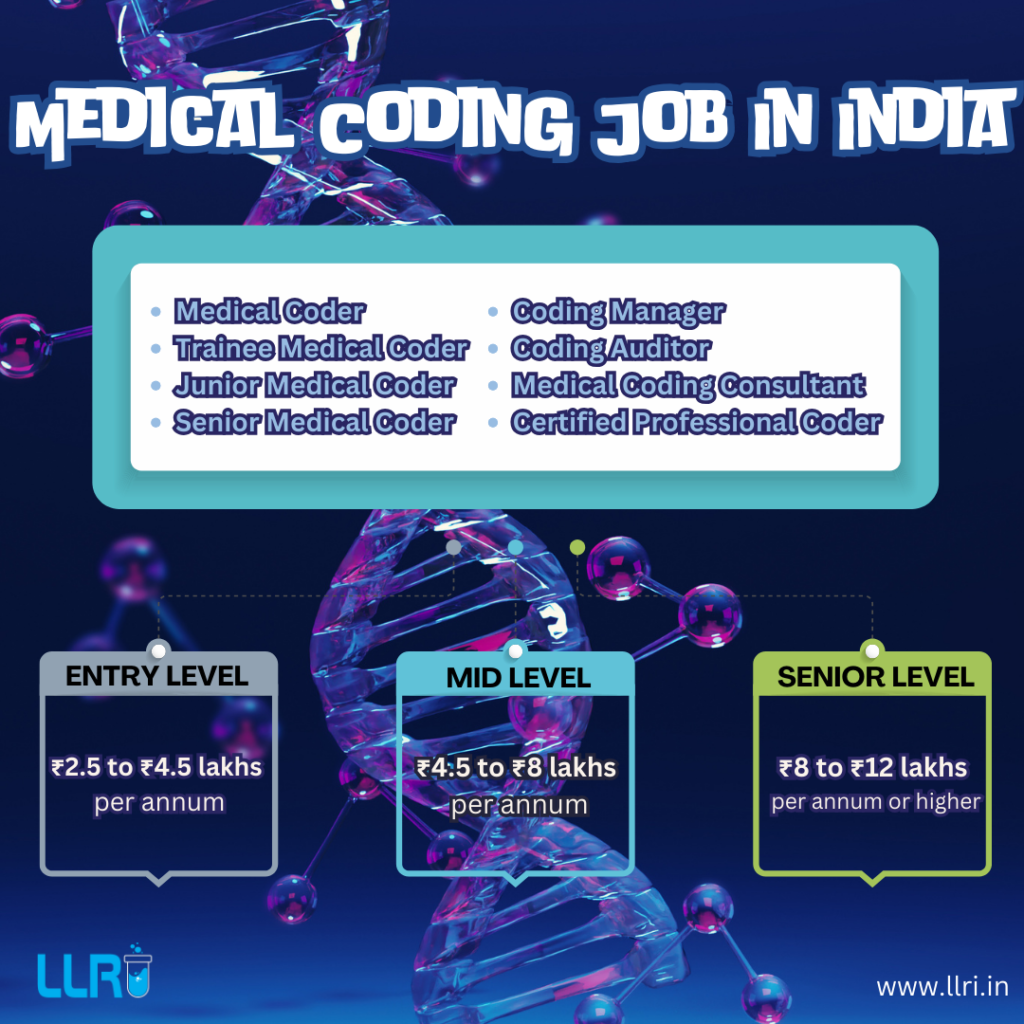The role of medical coders has become increasingly crucial, presenting an exciting and challenging career option that is currently in high demand. Amidst the ongoing pandemic, the significance of medical coding has surged, making it an even more attractive prospect for job seekers in the healthcare industry – one of the fastest-growing sectors globally.
Medical coding course eligibility criteria
To seek a medical coding course, a person must have a bachelor’s degree or master’s degree, first from a medical science backdrop or anything relevant. There are some specific medical coding course eligibility criteria, which are listed below:
- Medical coding course qualification criteria require the aspirant to graduate from medical science or life-sciences courses.
- Medical coding course eligibility includes aspirants to have a minimum of 50% aggregate in their undergraduate degree.
- Graduates from any domain are eligible for medical coding courses and are mandatorily required to know anatomy and physiology modules.
- So far, no age limit is included in India’s medical coding course qualification.

Medical coding eligibility criteria in India
Medical coding course eligibility criteria in India vary among institutions, but certain general requirements are commonly applicable across programs. These criteria include:
Educational Background:
- Typically, a high school diploma or its equivalent is the minimum educational requirement for medical coding courses.
- Some programs may prefer candidates with an associate’s or bachelor’s degree in a related field such as healthcare, mathematics, or science.
Language Proficiency:
- A strong command of the English language is essential for medical coding. Given the complex medical terminologies involved, students must be proficient in reading, writing, and speaking English fluently.
Computer Proficiency:
- Proficiency in using computer software is a fundamental requirement for medical coding courses. Students should possess the necessary computer skills and have access to an internet connection, as modern coding often involves digital platforms.
Age Requirements:
- Certain medical coding programs may have specific age restrictions. Prospective students must ensure that they meet the age requirements outlined by the institution offering the course.
Work Experience:
- Some medical coding programs may consider prior work experience in the healthcare industry or related fields as an asset. This experience might include roles in medical transcription, medical assisting, or medical billing.
In essence, the eligibility criteria for medical coding courses aim to ensure that candidates have a foundational education, language proficiency for dealing with medical terminology, necessary computer skills, and, in some cases, relevant work experience. Aspiring students should carefully review the specific requirements of the program they are interested in, as variations may exist between institutions and their respective curricula.
At Learning Labb Research Institute, a leading clinical research institute, we offer comprehensive programs in medical coding and clinical research. Our clinical research courses are designed to equip students with the skills needed to thrive in the healthcare industry. Whether you are interested in pursuing a career in medical coding or enrolling in the Best Institute for PG Diploma in Clinical Research, you’ll find tailored programs that meet your needs.
Our clinical research training center provides top-notch education and hands-on experience, ensuring that our graduates are well-prepared for the job market. If you are curious about the clinical research course fees or the details of our clinical research training, we invite you to explore our programs and discover the best fit for your career aspirations.
Whether you are aiming to upskill or start fresh in the field, Learning Labb offers the perfect blend of academic rigor and practical training to ensure your success.

Medical coding course qualification
Enrolling in medical coding courses requires specific qualifications that are essential for a successful career in the medical field. Key qualifications in the medical coding field include:
Knowledge of Medical Terminologies:
A solid understanding of physiology, medical terminology, and anatomy is crucial for medical coders. Proficiency in these areas ensures accurate interpretation of medical records and proper code assignment.
Attention to Details:
Medical coding demands a high level of attention to detail. Coders must meticulously review and analyze medical records to precisely assign the appropriate codes. Precision is vital to maintaining the integrity of healthcare data.
Analytical Skills:
Analytical skills are integral to medical coding as professionals need to interpret complex medical records and assign codes based on the information provided. Strong analytical abilities enable coders to navigate through intricate healthcare documentation effectively.
Communication Skills:
Effective communication skills are essential for medical coders. Collaborating with healthcare providers, coders need to clarify information, seek additional details, and ensure accurate code assignment. Clear communication fosters a collaborative and efficient work environment.
Certifications:
Acquiring certifications in medical coding signifies a level of expertise in the field and enhances job opportunities with potentially higher salaries. Institutions like Clini Launch Research Institute offer reputable certifications such as CPC (Certified Professional Coder) and CCS (Certified Coding Specialist), which are recognized industry-wide. These certifications validate the proficiency and competence of medical coders.
In summary, a successful career in medical coding requires a combination of foundational knowledge in medical terminology, keen attention to detail, strong analytical skills, effective communication abilities, and, often, industry-recognized certifications. These qualifications not only enhance the professional capabilities of medical coders but also contribute to the accuracy and efficiency of healthcare data management.
Conclusion
In conclusion, the boom in medical coding is a testament to its indispensability in the contemporary healthcare landscape. Individuals who embark on this career path find themselves at the intersection of healthcare and technology, contributing significantly to the smooth functioning of the industry. As the demand for skilled professionals continues to rise, pursuing a career in medical coding presents an opportunity for both personal and professional growth, particularly in the current global health scenario.

